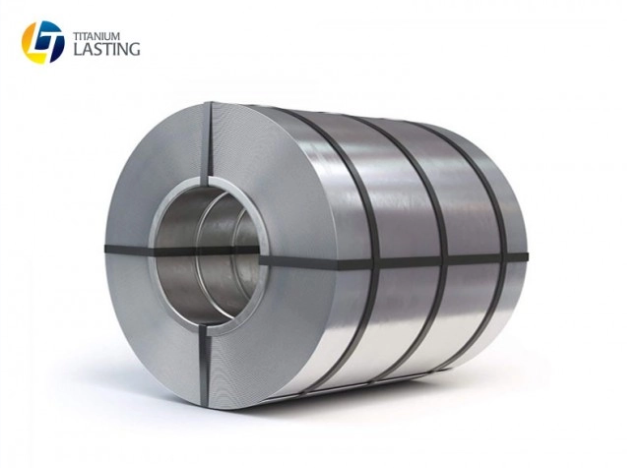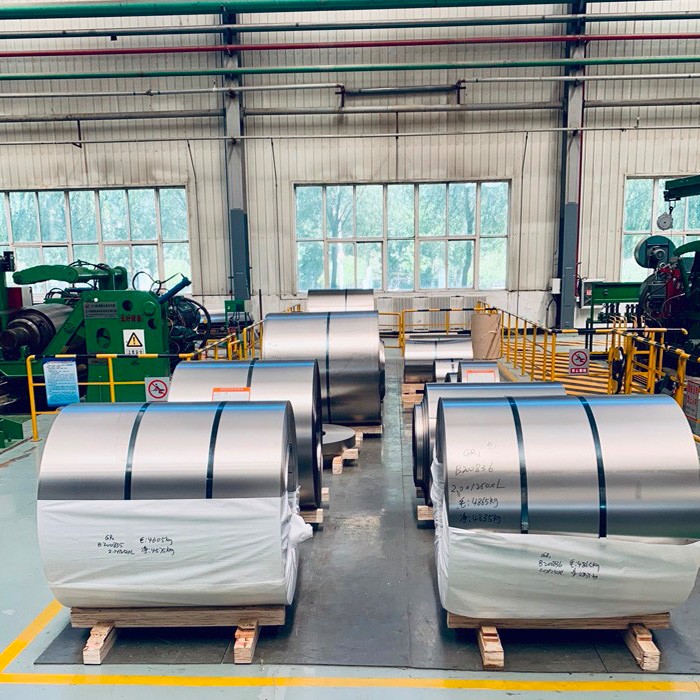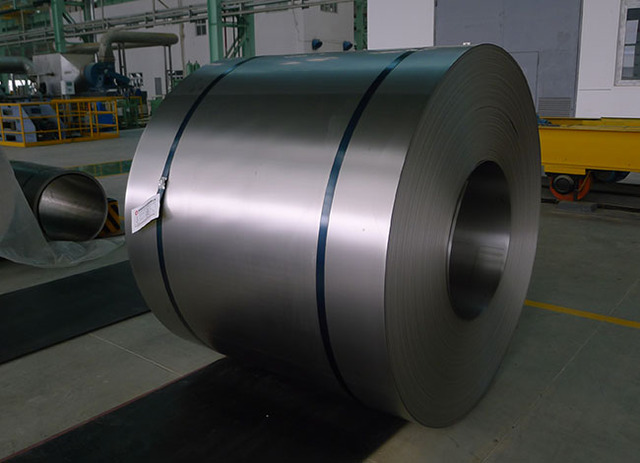Views: 325 Author: Lasting Titanium Publish Time: 2025-02-25 Origin: Site











Content Menu
● What is Titanium Strip Coil?
>> 3. Annealing
>> 4. Coiling
● Applications of Titanium Strip Coils
>> 1. Aerospace
● Advantages of Using Titanium Strip Coils
● Challenges in Working with Titanium Strip Coils
>> 1. What are the main uses of titanium strip coils?
>> 2. How are titanium strip coils manufactured?
>> 3. What are the advantages of using titanium over other metals?
>> 4. What challenges are associated with machining titanium?
>> 5. Is titanium strip coil expensive?
Titanium strip coils are essential materials in various industries due to their unique properties, including high strength, low weight, and excellent corrosion resistance. These characteristics make titanium an attractive option for applications where performance and reliability are critical. This article delves into the characteristics, manufacturing processes, applications, and advantages of titanium strip coils, providing a comprehensive understanding of this versatile material. By exploring the nuances of titanium strip coils, we can appreciate their significance in modern engineering and manufacturing.
Titanium strip coils are flat, rolled products made from titanium, which can be produced in various thicknesses and widths. They are classified as titanium strips when their thickness is less than or equal to 4.75 mm and their width is less than 610 mm. These coils can be manufactured from commercially pure titanium or titanium alloys, depending on the specific requirements of the application. The choice between pure titanium and alloys often hinges on the desired mechanical properties and the environmental conditions the material will face. Understanding the distinctions between these materials is crucial for engineers and designers when selecting the right titanium strip coil for their projects.
Titanium is known for several key properties that make it an ideal choice for many applications:
- High Strength-to-Weight Ratio: Titanium is as strong as steel but significantly lighter, making it suitable for applications where weight reduction is critical. This property is particularly advantageous in aerospace and automotive industries, where every gram counts towards fuel efficiency and performance.
- Corrosion Resistance: Titanium exhibits excellent resistance to corrosion in various environments, including seawater and acidic conditions. This makes it a preferred material for chemical processing and marine applications, where exposure to harsh conditions is common.
- Biocompatibility: Titanium is non-toxic and biocompatible, making it a preferred material in medical implants and devices. Its compatibility with human tissue reduces the risk of rejection, making it ideal for surgical applications.
- Temperature Resistance: Titanium maintains its strength and stability at high temperatures, making it suitable for aerospace and automotive applications. This property allows titanium components to perform reliably in extreme conditions, such as those found in jet engines.

The production of titanium strip coils involves several key processes:
Titanium is typically produced through the Kroll process, where titanium tetrachloride is reduced with magnesium. This process can also involve alloying elements to enhance specific properties, such as strength or corrosion resistance. The choice of alloying elements, such as aluminum or vanadium, can significantly influence the final properties of the titanium strip, allowing manufacturers to tailor the material to specific applications.
Once the titanium is produced, it undergoes rolling processes to achieve the desired thickness and width. Hot rolling is performed at elevated temperatures, allowing for easier deformation, while cold rolling is done at room temperature, resulting in a finer surface finish and improved mechanical properties. The rolling process not only shapes the material but also affects its microstructure, which in turn influences its mechanical properties.
After rolling, the titanium strips may be annealed to relieve internal stresses and improve ductility. This process involves heating the material to a specific temperature and then cooling it at a controlled rate. Annealing is crucial for ensuring that the titanium strip coils have the desired mechanical properties, such as toughness and flexibility, which are essential for further processing and application.
Finally, the rolled and annealed strips are wound into coils for easier handling and transportation. The coiling process must be carefully controlled to prevent damage to the strips. Proper coiling techniques ensure that the titanium strips remain intact and ready for subsequent processing, such as cutting or forming into specific shapes.

Titanium strip coils are used in a wide range of applications across various industries:
In the aerospace industry, titanium strip coils are used for components that require high strength and low weight, such as aircraft frames, engine parts, and fasteners. The ability of titanium to withstand extreme temperatures and corrosive environments makes it ideal for this sector. Additionally, the use of titanium in aerospace applications contributes to fuel efficiency and overall performance, making it a critical material for modern aircraft design.
Due to its biocompatibility, titanium is widely used in medical implants, surgical instruments, and dental devices. Titanium strip coils can be fabricated into various shapes and sizes to meet specific medical requirements. The versatility of titanium allows for the creation of customized implants that can integrate seamlessly with human anatomy, enhancing patient outcomes and recovery times.
Titanium's resistance to corrosion makes it suitable for chemical processing equipment, including heat exchangers, reactors, and piping systems. The use of titanium strip coils in these applications helps to extend the lifespan of equipment and reduce maintenance costs. By minimizing the risk of corrosion-related failures, manufacturers can ensure the reliability and efficiency of their chemical processing operations.
In marine environments, titanium strip coils are used in components such as propeller shafts, hulls, and fittings. Their resistance to seawater corrosion ensures durability and reliability in harsh conditions. The lightweight nature of titanium also contributes to improved performance in marine vessels, making it a preferred choice for shipbuilders and marine engineers.
The automotive industry utilizes titanium strip coils for lightweight components that enhance fuel efficiency and performance. Applications include exhaust systems, suspension parts, and engine components. As the automotive industry increasingly focuses on sustainability and reducing emissions, the demand for lightweight materials like titanium continues to grow.
The use of titanium strip coils offers several advantages:
- Weight Savings: The high strength-to-weight ratio of titanium allows for lighter components without sacrificing strength. This is particularly beneficial in industries where reducing weight can lead to significant performance improvements.
- Durability: Titanium's corrosion resistance ensures long-lasting performance in various environments. This durability translates to lower maintenance costs and extended service life for components made from titanium strip coils.
- Versatility: Titanium strip coils can be easily fabricated into different shapes and sizes, making them suitable for a wide range of applications. This versatility allows manufacturers to innovate and create customized solutions for specific challenges.
- Cost-Effectiveness: While titanium can be more expensive than other materials, its durability and performance can lead to lower overall costs in the long run. The reduced need for maintenance and replacement can offset the initial investment in titanium components.

Despite their advantages, there are challenges associated with working with titanium strip coils:
- Machining Difficulties: Titanium can be challenging to machine due to its strength and tendency to work-harden. Specialized tools and techniques are often required. Manufacturers must invest in advanced machining technologies to effectively work with titanium, which can increase production costs.
- Cost: The initial cost of titanium can be higher than other materials, which may deter some manufacturers from using it. However, as the demand for lightweight and durable materials grows, the cost of titanium is becoming more competitive.
- Welding Challenges: Welding titanium requires careful control of the environment to prevent contamination and ensure strong joints. The sensitivity of titanium to impurities necessitates the use of specialized welding techniques and equipment, which can complicate the manufacturing process.
Titanium strip coils are a vital material in modern manufacturing, offering a unique combination of strength, lightweight, and corrosion resistance. Their applications span across various industries, including aerospace, medical, chemical processing, marine, and automotive. While there are challenges in working with titanium, the benefits often outweigh the drawbacks, making it a preferred choice for many high-performance applications. As technology advances and the demand for innovative materials continues to rise, titanium strip coils will play an increasingly important role in shaping the future of engineering and manufacturing.
Titanium strip coils are primarily used in aerospace, medical devices, chemical processing, marine applications, and automotive industries.
They are manufactured through melting and alloying, followed by hot and cold rolling, annealing, and coiling.
Titanium offers a high strength-to-weight ratio, excellent corrosion resistance, biocompatibility, and temperature resistance.
Machining titanium can be difficult due to its strength and work-hardening properties, requiring specialized tools and techniques.
While titanium can be more expensive than other materials, its durability and performance can lead to lower overall costs in the long run.
This article explores the best titanium wire grades for welding applications, detailing the properties and uses of various grades, including commercially pure titanium and titanium alloys. It discusses factors influencing grade selection, welding techniques, best practices, and applications in industries such as aerospace, medical, and chemical processing.
This article explores the key stages in processing titanium from raw ore to finished rods and wires. It covers extraction, beneficiation, production of titanium sponge, melting, forging, rolling, wire drawing, surface treatment, and quality control. The unique properties of titanium make it suitable for various applications, particularly in aerospace and medical fields. The ongoing advancements in titanium processing technologies promise to enhance its applications further.
This article provides a detailed overview of the manufacturing process of titanium welded tubes, covering raw material selection, cutting, welding techniques, heat treatment, finishing processes, and quality control. It highlights the applications of titanium welded tubes in various industries, emphasizing their advantages and the importance of quality assurance in production.
This article provides a comprehensive overview of sponge titanium, detailing its composition, grades, benefits, and applications. Sponge titanium is a high-purity, porous form of titanium produced through the Kroll process, making it ideal for industries such as aerospace and medical devices. Its unique properties, including lightweight strength and corrosion resistance, make it a valuable material in modern manufacturing.
This article explores how titanium wire is revolutionizing modern manufacturing through its unique properties and applications. It highlights the advantages of titanium wire in various industries, innovations in manufacturing techniques, and the future potential of this remarkable material. As demand for lightweight, high-strength materials grows, titanium wire is set to play a crucial role in advancing manufacturing practices.
This article outlines common mistakes to avoid when purchasing titanium wire, emphasizing the importance of understanding grades, supplier reputation, material specifications, and application requirements. It provides practical tips for ensuring quality and performance, ultimately guiding buyers to make informed decisions in their procurement process.
This article provides a comprehensive guide on selecting titanium wire based on diameter and grade. It covers the properties of titanium wire, common diameter ranges, and the significance of different grades. Key factors for selection, including application requirements and manufacturing processes, are discussed to help ensure optimal performance in various applications.
This article explores the differences between hot rolled and cold rolled titanium round bars, focusing on their production methods, mechanical properties, applications, and advantages. Cold rolled bars offer higher strength and better surface finish, while hot rolled bars are more cost-effective and available in larger sizes. Understanding these differences is crucial for selecting the right titanium material for various industrial applications.
In summary, the choice between cold rolled and hot rolled titanium bars depends on the specific requirements of the application. Cold rolled bars offer higher strength, better surface finish, and tighter tolerances, making them ideal for precision applications. In contrast, hot rolled bars provide cost-effective solutions for larger projects where exact dimensions are less critical. Understanding the differences in production and properties of these two types of titanium bars is essential for selecting the right material for your needs.
This article explores the intricate process of manufacturing titanium wire from raw bar stock, detailing each step from raw material preparation to surface treatment. It highlights the importance of precision in producing high-quality titanium wire, which is essential for various industries, including aerospace and medical applications. The versatility and performance of titanium wire make it a critical material in modern engineering and manufacturing.
This article explores the transformation of sponge titanium into titanium ingots, detailing the key processes involved, including purification, compaction, vacuum arc remelting, and casting. It highlights the importance of each step in ensuring the quality and performance of the final product.
This article explores the key production processes and differences between cold-rolled and hot-rolled titanium sheets. It discusses the impact of production temperature on mechanical properties, surface finish, thickness, and cost considerations. The article also highlights the applications of both types of titanium sheets in various industries, providing insights for selecting the appropriate material for specific projects.
This article explores the process of converting titanium sponge to ingot, detailing each step from purification to melting and casting. It highlights the importance of titanium ingots in various applications and discusses future trends in titanium production, including sustainability and advancements in alloy development.
This article explores the classification of titanium sponge grades, detailing their chemical composition, mechanical properties, and applications. It highlights the differences between commercially pure and alloy grades, emphasizing their importance in various industries. Future trends in titanium sponge production are also discussed, focusing on sustainability and advancements in alloy development.
This article explores the intricate process of converting rutile into titanium sponge, detailing each step from ore preparation to purification and melting. It highlights the importance of titanium in various industries and discusses environmental considerations and future production methods.
This comprehensive guide explores the benefits, applications, and purchasing tips for titanium wire in 3D printing. It covers essential properties, how to choose the right grade, and storage recommendations, making it a valuable resource for anyone interested in utilizing titanium wire for their 3D printing needs.
This article explores the key performance differences between pure titanium wire and titanium alloy wire, highlighting their unique properties, advantages, and applications. Pure titanium wire is known for its excellent corrosion resistance and biocompatibility, making it ideal for medical and marine applications. In contrast, titanium alloy wire offers enhanced strength and performance characteristics, making it suitable for demanding applications in aerospace, automotive, and industrial settings. The choice between the two ultimately depends on specific application requirements.
This article explores the applications of titanium wire in aerospace engineering, highlighting its unique properties such as high strength-to-weight ratio, corrosion resistance, and temperature tolerance. From aircraft structures to engine components and spacecraft applications, titanium wire plays a crucial role in enhancing performance and reliability in the aerospace industry. As technology advances, its applications are expected to expand further.
This article explores the diverse applications of titanium wire in the medical industry, highlighting its biocompatibility, strength, and corrosion resistance. From orthopedic surgery to dental implants and cardiovascular devices, titanium wire plays a crucial role in enhancing patient care and surgical outcomes. As technology advances, its applications are expected to expand further.
This article provides a comprehensive guide on selecting titanium tubes that comply with ASTM and AMS standards. It covers key factors to consider, the importance of compliance, common applications, and future trends in titanium tube manufacturing. Understanding these aspects is crucial for ensuring the safety and reliability of titanium tubes in various industries.
